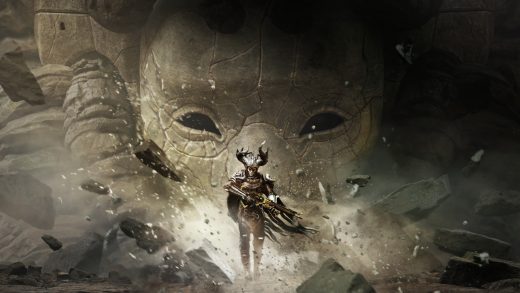:format(webp)/https://www.thestar.com/content/dam/thestar/entertainment/books/reviews/2023/01/19/round-up-4-new-books-of-canadian-poetry-to-start-2023/main.png)
Shapeshifters
By Délani Valin
Nightwood Editions, 96 pages, $19.95
Délani Valin opens her debut collection by cycling through a range of personas, and then pivots to introspective narrative poems reflecting on her Métis roots, surviving trauma and her struggle for self-acceptance. By inhabiting cultural icons, the B.C. writer subverts what they represent: thus the Starbucks logo of a mermaid laments being reduced from a mythic creature who could “sink southern ships/with the flick of a fin” to “a fish-tossed mascot” gazing helplessly at “the floating paper cups” on the sea. Her sly commentary on social stereotypes tips into the surreal in “The Giantess,” where a woman asserts her right to take up space in a big way. Transformation also underlies the autobiographical poems. Valin writes poignantly of feeling conflicted about her mixed identity and internalizing racism as a child, recalling cousins who “compared each other’s/features. Who’s pretty? Who’s Indian?” But it’s through reconnecting with Métis traditions that Valin overcomes the sense of being “a stranger to myself.”
Canticles III
By George Elliott Clarke
Guernica Editions, 490 pages, $29.95
This hefty volume completes a project that George Elliott Clarke, author of numerous books and a former poet laureate of both Toronto and Canada, began in 2008. The final chapter of a sweeping epic poem about the slave trade, imperialism and Black resistance, it features his trademark blend of high and low diction that shifts from the erudite to the bawdy, and draws on the historical record and a wide cast of characters from across centuries. Its main focus is the arrival of former enslaved people to Nova Scotia between 1812 and 1815, “most with souls bedraggled/Like their shoe soles,” who were offered only land “of swamp and stone,” and the founding of the “Africadian” Baptist Church by Richard Preston, who was one of those refugees. Fittingly, there’s an evangelical fervour to “Canticles III,” not only in its celebration of Black resilience through history but also in its faith in the power of language.
Pronounced/Workable
By Candace de Taeye
Mansfield Press, 112 pages, $18
In her remarkable second collection, Candace de Taeye plunges the reader into the life of a paramedic, and it’s a challenging, revelatory ride, based on her experience working in the GTA for 15 years. Many of the poems are a barrage of clinical terminology, quotes about protocol and in-the-moment narrative, which convey how complex and overwhelming the job can be. De Taeye’s phrasing is occasionally lyrical (“always remember that resuscitation is one part lullaby”) but it’s her crisp, documentary approach that really hits home, as in her description of treating a cardiac arrest: “sweat, produce strange tools … break a rib, open the throat, grunt, inflate the/chest, induce contractions with a walloping biphasic jolt.” Elsewhere, de Taeye makes evident that the job’s psychological and emotional toll also weighs on her life as a wife and mother, in a poem where grim recitals —“Gunshot/wounds, hangings, jumpers” — mesh with “seclusion, isolation and loneliness” and “struggle and tenderness happens.”
Learned
By Carellin Brooks
Book*hugPress, 120 pages, $20
The Vancouver writer Carellin Brooks traces her bumpy path to coming of age, intellectually and sexually, in this provocative, sharply observed and often funny debut collection. Set mostly in the 1990s, the poems unfurl in a rush of impressions, thoughts and snatches of conversation that gives them a vibrant immediacy and conveys both nervousness and excitement. Brooks describes living in two worlds simultaneously: the cerebral realm of Oxford, with its rarefied air of academic privilege, and the demi-monde of pubs where she explores queer desire and sadomasochism (“Could I, is that what I want?” she writes in one poem). On the academic front, Brooks was a Rhodes Scholar, but found the unspoken conventions of this elite bastion of Britishness baffling. Her juxtapositions are slyly humorous: she moves from a deflating encounter with her “moral tutor” to “Dungeon 101,” which offers very different lessons. Ultimately, Brooks gleans enlightenment from both settings, and reckons with her past.
JOIN THE CONVERSATION
:format(webp)/https://www.thestar.com/content/dam/thestar/entertainment/books/reviews/2023/01/19/round-up-4-new-books-of-canadian-poetry-to-start-2023/second1.png)


